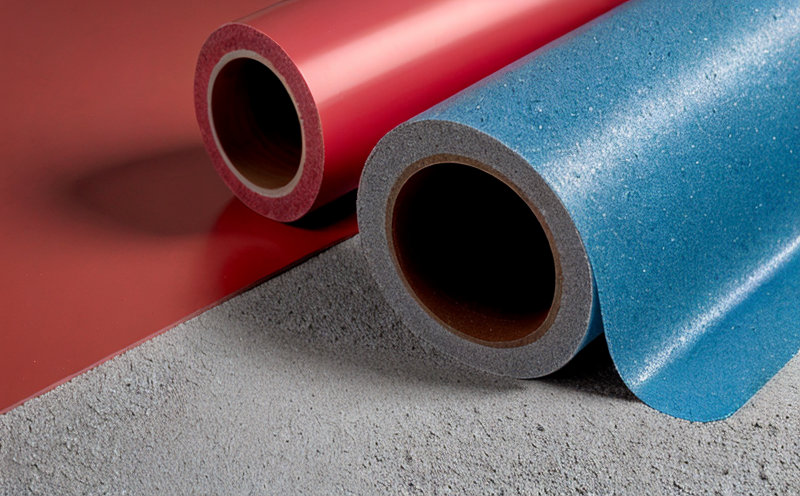ASTM D1929 Ignition Temperature Testing of Aerospace Materials
The ASTM D1929 test method is a critical standard used by aerospace and aviation industries to determine the ignition temperature of materials. This test evaluates how well a material resists ignition under controlled laboratory conditions, which is essential for ensuring safety in aircraft applications where even minor sparks or heat sources can have catastrophic consequences.
The ignition temperature is defined as the lowest temperature at which a material will ignite and sustain combustion when exposed to an external source of ignition. This test assesses the thermal stability of materials under specific conditions that simulate real-world scenarios, such as engine exhaust temperatures or frictional heating in flight operations.
ASTM D1929 involves subjecting specimens cut from aerospace-grade materials to a series of controlled heating cycles. The material is exposed to an external heat source until it reaches its ignition temperature, which is then determined by observing the onset of combustion. This test is crucial for compliance with international standards like ISO 5801 and AS 6229, ensuring that materials used in aerospace applications meet stringent safety requirements.
The ASTM D1929 protocol specifies precise procedures for specimen preparation, heating rates, and observation techniques to ensure accurate and consistent results. Specimens are typically cut from larger test panels into small cubes or discs with specific dimensions, depending on the material type and expected application. The testing environment must be controlled to maintain constant temperature and humidity levels, ensuring that only the material properties contribute to the ignition behavior.
Understanding the significance of ASTM D1929 in aerospace materials goes beyond compliance; it also aids R&D engineers in optimizing material formulations for better performance. By identifying the ignition temperatures of various materials, manufacturers can select those with higher resistance to ignition, thus enhancing the overall safety and reliability of aircraft components.
Compliance officers play a vital role in ensuring that all aerospace-grade materials used meet not only ASTM D1929 but also other relevant standards such as ISO 5801 and AS 6229. This compliance ensures that products are safe for use in high-pressure environments, reducing the risk of fire or explosion during operation.
For quality managers, understanding ASTM D1929 is essential because it helps in establishing robust quality control processes. By incorporating this test into their testing protocols, companies can ensure that all materials used meet the necessary safety thresholds, thereby protecting both personnel and equipment from potential hazards.
In summary, ASTM D1929 ignition temperature testing is a cornerstone of aerospace material development and quality assurance. It provides critical insights into material behavior under specific thermal conditions, enabling manufacturers to make informed decisions about material selection and optimization.
Industry Applications
| Aerospace Component | ASTM D1929 Relevance |
|---|---|
| Fuel Tanks | Evaluates resistance to ignition from fuel vapor and engine exhaust. |
| Engine Parts | Determines the ability of parts to withstand high-temperature environments without igniting. |
| Landing Gear Components | Assesses durability in conditions where frictional heating is a significant factor. |
| Electrical Wiring | Ensures materials do not ignite under electrical faults or overheating scenarios. |
- Fuel systems, which must resist ignition from fuel vapor and engine exhaust temperatures.
- Structural components, especially those in high-temperature areas such as turbines and landing gear.
- Electrical insulation materials to prevent short circuits leading to fires or explosions.
Eurolab Advantages
At Eurolab, we provide comprehensive ASTM D1929 ignition temperature testing services tailored specifically for the aerospace and aviation sectors. Our state-of-the-art facilities and experienced team ensure that every test is conducted according to the highest standards, delivering reliable and repeatable results.
- Comprehensive Testing Capabilities: We offer a full range of ASTM D1929 testing services, including specimen preparation, heating cycles, and combustion observation.
- Accurate Results: Our precision equipment and controlled test environments guarantee accurate measurements and consistent results.
- Compliance with Standards: We adhere strictly to ASTM D1929 as well as other relevant aerospace standards like ISO 5801 and AS 6229, ensuring that all tests meet industry requirements.
- Detailed Reporting: Our reports provide comprehensive data on ignition temperatures along with recommendations for material selection based on test results.
Our commitment to quality ensures that every client receives the best possible service, contributing to safer and more reliable aerospace products.
Quality and Reliability Assurance
- Rigorous Testing Protocols: Our testing follows strict ASTM D1929 protocols, ensuring that all materials are subjected to realistic thermal stress conditions.
- Data Integrity: We use advanced instrumentation to record temperature and combustion data with high precision, providing robust evidence for decision-making.
- Comprehensive Reporting: Detailed reports include not only ignition temperatures but also recommendations for improving material properties or selecting alternative materials.
- Evidence of compliance with international standards such as ISO 5801 and AS 6229, ensuring that all products meet safety requirements.
- Support in meeting regulatory requirements by providing robust data to back up claims of product performance and safety.
By leveraging our advanced testing methodologies and adherence to international standards, Eurolab ensures that every material tested is not only safe but also reliable under the most demanding conditions.





